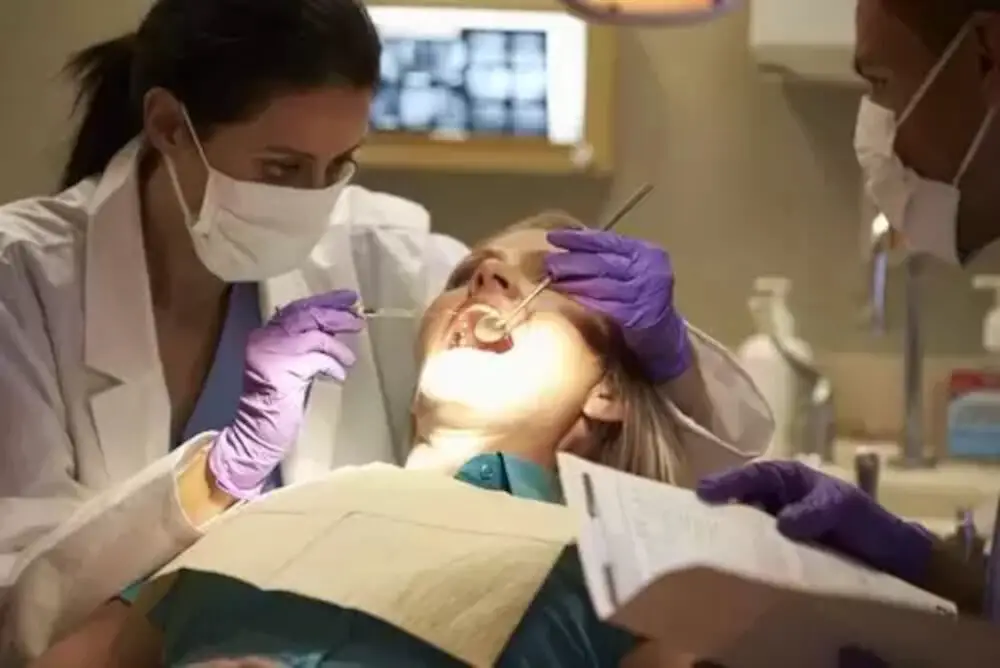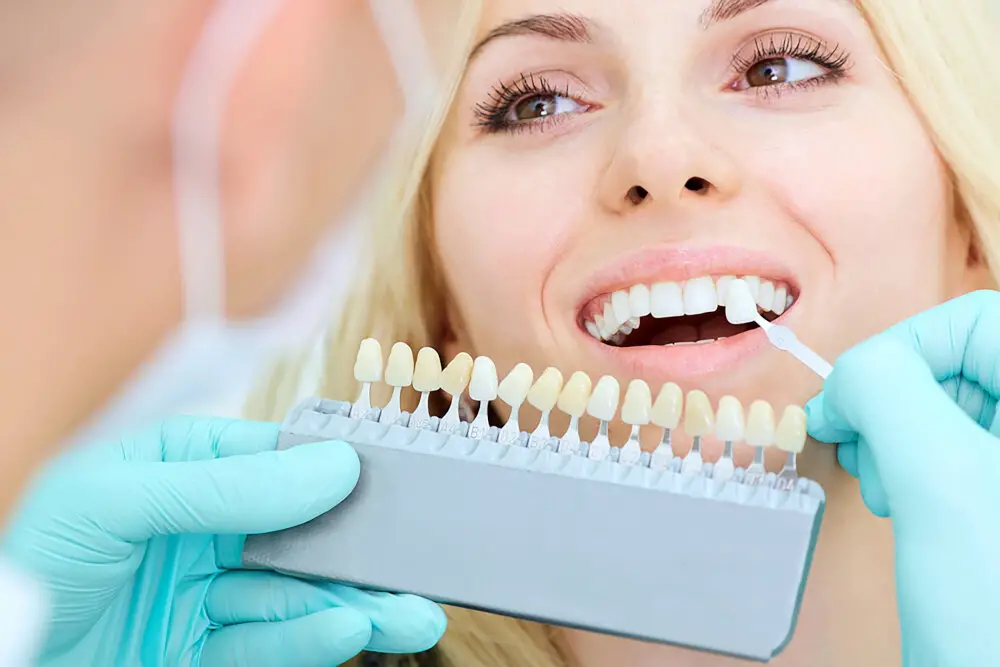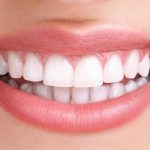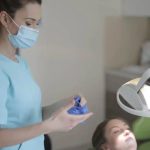Why Are Some Babies Born With Teeth? Exploring the Causes and Implications of Natal Teeth

Every parent eagerly awaits the arrival of their little one, but the experience can be even more surprising when a baby is born with teeth. Natal teeth, or teeth present at birth, is a rare phenomenon that occurs in about 1 in 2,000 to 3,000 newborns. While it may seem like a fascinating sight, it can also raise questions and concerns about the underlying causes and potential complications. Natal teeth can appear in any part of the mouth, from the front to the back, and can range from a single tooth to a cluster of teeth. They are often small, underdeveloped, and loose, and may cause discomfort and difficulty in feeding. The causes of natal teeth are not entirely clear, but several factors have been suggested, including genetics, hormonal imbalances, and environmental factors. In some cases, natal teeth may be associated with certain medical conditions, such as cleft lip and palate or Ellis-van Creveld syndrome. Understanding the causes and implications of natal teeth can help parents and healthcare professionals identify and manage any potential issues that may arise.
Natal teeth refer to the teeth that are present in the mouth of a newborn baby at the time of birth. These teeth are relatively rare, occurring in approximately 1 out of every 2,000-3,000 births. Natal teeth are usually located on the lower gum line and can be either fully formed or partially erupted. They can be a single tooth or multiple teeth, and they are typically small and underdeveloped. While the exact cause of natal teeth is unknown, they may be associated with certain genetic conditions or environmental factors. Natal teeth can cause some discomfort for the baby and may need to be removed if they interfere with feeding or pose a risk of aspiration.
Historical accounts of natal teeth date back to ancient times, with references in Greek, Roman, and Chinese medical texts. Some cultures even believed that babies born with teeth were a sign of good luck or supernatural abilities. However, these teeth were often viewed as a medical anomaly and were believed to be associated with negative outcomes, such as difficulty breastfeeding or increased risk of infant mortality. As medical knowledge advanced, the understanding of natal teeth shifted, and they are now recognized as a relatively rare but harmless occurrence with minimal impact on a baby’s health. Despite this, their appearance can still be startling for new parents and may require special attention from healthcare professionals.
Natal teeth, or teeth present at birth, are a rare occurrence with a prevalence rate of approximately 1 in 2,000 to 3,000 live births worldwide. This condition is more common in females, and the lower jaw is more frequently affected than the upper jaw. The etiology of natal teeth is still unclear, but some studies suggest that genetic factors and environmental factors may play a role in their occurrence. Natal teeth can cause complications such as difficulty breastfeeding, injury to the infant’s tongue, and potential aspiration of the tooth into the airway. Therefore, it is essential to monitor and manage natal teeth to prevent any potential complications.
Causes of Natal Teeth

Natal teeth, also known as neonatal teeth, are teeth that are present at the time of birth. They are a relatively rare occurrence, affecting approximately 1 in every 2,000 to 3,000 births. The exact cause of natal teeth is not fully understood, but there are several theories. One theory is that they are the result of genetic factors, as they tend to run in families. Another theory is that they are caused by hormonal imbalances during pregnancy, which can affect the development of teeth. Additionally, some studies have suggested that natal teeth may be linked to certain medical conditions, such as cleft lip and palate or ectodermal dysplasia. While natal teeth are generally harmless, they can sometimes cause problems. For example, they may be loose and pose a choking hazard for the baby, or they may interfere with breastfeeding. In some cases, natal teeth may need to be removed to prevent complications. If your baby is born with teeth, it is important to have them evaluated by a pediatric dentist to determine the best course of action. Overall, while natal teeth may be a surprising and unexpected occurrence, they are generally manageable with proper care and attention.
Genetics is the study of heredity and how traits are passed down from one generation to the next. When it comes to natal teeth, genetics can play a role in their occurrence. In some cases, natal teeth may be inherited through a genetic mutation that affects tooth development. This mutation can be passed down from one or both parents, increasing the likelihood that their child will be born with teeth. Additionally, certain genetic conditions, such as Ellis-van Creveld syndrome and Hallermann-Streiff syndrome, are associated with natal teeth. These conditions can affect not only the teeth but also other parts of the body, highlighting the intricate connections between genetics and development. Understanding the genetic basis of natal teeth can provide insights into their causes and potential implications for affected infants.
Environmental factors could be one of the causes of natal teeth, which are teeth that are present at birth or emerge within the first month of life. Some environmental factors that have been linked to natal teeth include maternal nutrition, exposure to toxins during pregnancy, and certain medications taken by the mother. Poor maternal nutrition during pregnancy can limit the transfer of essential nutrients to the developing fetus, which can affect the growth and development of teeth. Exposure to toxins, such as cigarette smoke or alcohol, can also negatively impact fetal tooth development. Additionally, certain medications taken by the mother, such as anticonvulsants or antibiotics, have been associated with the development of natal teeth in some cases. While more research is needed to fully understand the role of environmental factors in natal tooth development, it is clear that prenatal care is crucial for ensuring optimal fetal health.
A syndrome is a group of medical conditions or symptoms that occur together and signify a particular disease or disorder. Medical conditions, on the other hand, refer to any health-related issue that affects an individual’s physical or mental well-being. In the context of the article, the presence of natal teeth in some babies may be linked to certain syndromes or medical conditions such as Ellis-van Creveld syndrome or neonatal hyperthyroidism. Understanding the possible underlying causes of natal teeth can help healthcare professionals to provide appropriate interventions and care for affected infants.
Medications and substances have been identified as potential contributors to the development of natal teeth in infants. Certain medications taken by mothers during pregnancy or breastfeeding, such as anticonvulsants and hormones, have been associated with the occurrence of natal teeth in their babies. Additionally, exposure to substances such as alcohol, tobacco, and drugs during pregnancy may also increase the likelihood of natal teeth. It is important for healthcare providers to educate pregnant women and new mothers about the potential risks associated with these medications and substances and to encourage them to discuss any concerns with their healthcare provider.
Implications of Natal Teeth

Natal teeth are a rare phenomenon that occurs in approximately 1 in 2,000 to 3,000 births. These teeth emerge through the gums within the first month of a baby’s life, and they are usually located in the lower front part of the mouth. While natal teeth can be a source of great concern for parents, they are not usually harmful to the baby’s health. However, there are some implications to consider when a baby is born with teeth. One of the main implications of natal teeth is the risk of injury to the baby’s tongue, lips, or other parts of the mouth. These teeth are often loose and may fall out easily, which could lead to choking or aspiration. In addition, natal teeth can cause irritation to the baby’s gums, which may result in discomfort, pain, and difficulty feeding. Finally, natal teeth can also be a sign of an underlying medical condition, such as a genetic disorder or hormonal abnormality. Therefore, it is essential to seek medical advice if your baby is born with teeth to ensure that they are healthy and safe.
Feeding difficulties can be a common problem for babies born with natal teeth. These teeth, which emerge from the gums at birth or within the first month of life, can cause discomfort and pain while breastfeeding or using a bottle. The sharpness of natal teeth can lead to latching issues, sore nipples, or even injury to the baby’s tongue or mouth. Additionally, some babies may refuse to feed altogether due to the discomfort caused by the teeth. It is essential for parents and caregivers to be aware of natal teeth and their potential impact on feeding, as early detection and management can help alleviate feeding difficulties and ensure proper nutrition for the baby.
The occurrence of natal teeth in newborns may put them at risk of aspiration and choking, which can be potentially fatal. The presence of these teeth during breastfeeding or bottle feeding can lead to the accidental ingestion of teeth or tooth fragments, causing choking and aspiration. Moreover, the premature eruption of teeth may also indicate an underlying medical condition that increases the risk of aspiration and choking, such as cleft palate or other anatomical abnormalities. Therefore, it is crucial for healthcare professionals to identify and manage natal teeth in newborns to ensure their safety and prevent any adverse outcomes.
Oral hygiene is crucial for maintaining healthy teeth and gums. Proper dental care begins with regular brushing and flossing to remove plaque and prevent cavities. Neglecting oral hygiene can lead to a variety of dental concerns, including tooth decay, gum disease, and bad breath. In infants, natal teeth can also pose a dental concern as they may cause discomfort or difficulty with feeding. It is important for parents to be aware of their child’s oral health and to seek professional dental care if any issues arise. Maintaining good oral hygiene from an early age can help prevent dental problems and promote a lifetime of healthy teeth and gums.
Natal teeth, or teeth that are present at birth, can have psychological effects on parents and caregivers. The surprise of discovering a baby with teeth can cause anxiety and confusion, as it is not a common occurrence. Additionally, the presence of teeth may cause discomfort for the baby during breastfeeding or bottle feeding, leading to frustration for both the baby and caregiver. Furthermore, the appearance of teeth in a newborn can also create social and cultural beliefs, as some may view the baby as \special\ or \lucky,\ while others may see it as a bad omen. Overall, natal teeth can have various psychological effects on those involved and should be closely monitored by healthcare professionals.
Treatment and Management

Treatment and management of natal teeth depend on various factors such as the infant’s overall health, the number of teeth present, and the possibility of complications. If the natal teeth are loose, they may need to be removed to prevent choking or aspiration. In such cases, a pediatric dentist or pediatrician may be consulted for advice on the best course of action. In some cases, a dentist may opt to leave the natal teeth in place if they are not causing any problems and are not interfering with feeding or speech development. Regular monitoring is essential to ensure that the teeth are not causing any harm. Parents should also be educated on proper oral hygiene practices for their infants with natal teeth. Since natal teeth have weaker roots than normal teeth, they are more susceptible to decay and cavities. Parents should avoid feeding their infants with sugary drinks or foods, and instead focus on a balanced diet consisting of fruits, vegetables, and whole grains. Regular brushing of the teeth with a soft-bristled brush and fluoride toothpaste is also important. Parents should also look out for signs of discomfort or pain in their infants, as this could be a sign of a dental problem that requires immediate attention. With proper management and care, infants with natal teeth can lead healthy and normal lives.
Extraction is the process of removing a tooth or teeth from the mouth. This can be done for a variety of reasons, including to alleviate pain, prevent infection, or make room for other teeth. In the case of natal teeth, extraction may be necessary if the tooth is causing discomfort or interfering with feeding. However, because natal teeth are often loose and fragile, extraction must be done with caution to avoid causing damage to the gums or adjacent teeth. In some cases, the tooth may be left in place if it is not causing any problems and is not likely to interfere with the baby’s oral development. Ultimately, the decision to extract a natal tooth should be made in consultation with a pediatric dentist or oral surgeon who can evaluate the situation and recommend the best course of action.
Monitoring and observation are crucial when it comes to natal teeth, which are the teeth that appear in a baby’s mouth at the time of birth. It is important to keep a close eye on these teeth, as they can cause various complications such as difficulty breastfeeding, choking hazards, and irritation to the baby’s tongue and lips. The dentist or pediatrician should closely monitor the natal teeth and ensure that they are not loose or causing any discomfort to the baby. Observation is also essential to identify any potential underlying medical conditions that may be causing the natal teeth, such as hormonal imbalances or genetic disorders. Overall, proper monitoring and observation can help prevent any complications and ensure the health and well-being of the baby.
Proper oral care and hygiene are crucial for maintaining healthy teeth and gums, regardless of whether a baby is born with teeth or not. It is important to clean a baby’s gums even before their teeth appear by gently wiping them with a clean, damp cloth. Once teeth do erupt, it is essential to brush them twice daily with a soft-bristled brush and fluoride toothpaste. Parents should also limit their child’s intake of sugary foods and drinks, as well as ensure they receive regular dental check-ups. By establishing good oral hygiene habits early on, parents can help prevent a range of dental problems and promote their child’s overall health and wellbeing.
In some cases, babies may be born with teeth, which can require referral to dental specialists for evaluation and treatment. Natal teeth, as they are called, can be a result of genetic factors or certain medical conditions, and may pose a risk for choking or injury to the baby’s tongue or surrounding tissues. Dental specialists such as pediatric dentists or oral surgeons can provide appropriate management for natal teeth, which may include removal or monitoring for any potential complications. It is important for parents and caregivers to seek prompt dental care for babies with natal teeth to ensure their safety and well-being.
Natal teeth, also known as neonatal teeth, are a rare phenomenon in which a baby is born with one or more teeth already present in their mouth. The exact cause of natal teeth is unknown, but there are several theories, including genetics and environmental factors. While natal teeth may not cause any immediate health concerns for the baby, they can lead to issues with breastfeeding and potential injury to the baby’s tongue or the mother’s nipple. Additionally, natal teeth can also be a sign of underlying health conditions, such as certain syndromes or metabolic disorders, that require further medical attention. Overall, the presence of natal teeth requires careful monitoring and evaluation by a healthcare professional to ensure the health and well-being of both the baby and mother.
The importance of early detection and proper management of natal teeth cannot be overstated. While natal teeth are not uncommon, they can lead to a range of complications if not identified and managed appropriately. Some of the potential issues that can arise include difficulty breastfeeding, irritation of the infant’s tongue and gums, and injury to the mother’s nipple. Additionally, natal teeth can be a sign of underlying health conditions that require medical attention. By detecting and managing natal teeth early on, healthcare providers can help ensure the health and well-being of both the infant and the mother. This underscores the importance of regular prenatal and postnatal care, as well as close monitoring of any changes in a newborn’s oral health.
Despite the fact that natal teeth are a relatively rare phenomenon, they have garnered a considerable amount of academic and medical attention over the years. However, the need for further research and understanding of natal teeth still remains, as there is much to be learned about the causes and implications of this unique condition. Specifically, researchers and medical professionals need to delve deeper into the genetic and environmental factors that contribute to the development of natal teeth, as well as the potential complications and health risks that may arise as a result. Additionally, more research is needed to determine the most effective and safe treatment options for infants born with natal teeth, and to develop guidelines for their long-term dental care and management. By continuing to study natal teeth, we can improve our understanding of this fascinating condition and provide better care for affected infants.
Conclusion

In conclusion, natal teeth are a rare but fascinating occurrence that raises questions about the development and health of newborns. While the causes of natal teeth are not fully understood, there are several factors that can contribute to their emergence, including genetics, hormonal imbalances, and certain medical conditions. While natal teeth can cause discomfort and potential complications, they can also be a source of joy and wonder for parents and healthcare providers alike. By continuing to explore the causes and implications of natal teeth, we can gain a deeper understanding of the complex processes that shape human development and pave the way for better care and treatment for newborns.






